Share
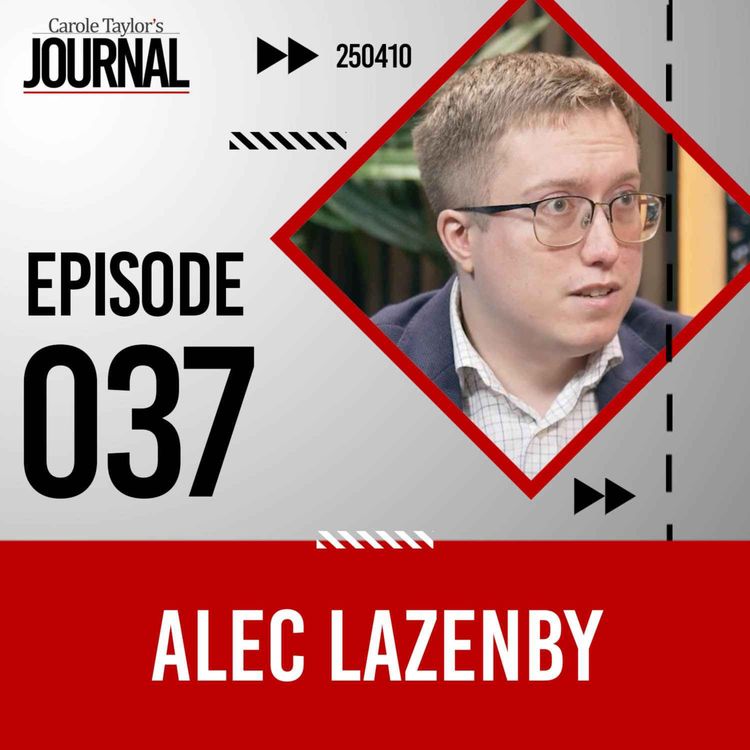
Carole Taylor's Journal
37 | Columbia River Water (w/ Alec Lazenby, Vancouver Sun)
On this edition of Journal, we take a close look at something we all take for granted: water. That is, we took it for granted until President Trump started talking about taking it away from us.
This is particularly important for British Columbia since he has focussed on the mighty Columbia River, whose headwaters are north of Cranbrook.
This is the faucet that the president suggests could be opened so that more of Canada’s water could flow to the US, helping with the drought and wildfires of California. Experts shake their heads at his concept – there is no faucet and the Columbia River doesn’t flow near to California. But politicians are paying attention.
In 1964, after some pretty heavy negotiations, Canada and the United States signed the Columbia River Treaty, giving the two countries shared management of the river. Canada would build dams to control water flow, thus preventing flooding in Washington State. In return, Canada received 50% of the profits from the hydroelectric power produced downstream.
Interestingly, Senator Jack Austin, who was involved in those negotiations, says that Canada got more than it deserved in that Treaty.
As it stands, more than 40% of US hydroelectric power comes from this Columbia River system. So you can see why it has caught the President’s attention.
The Treaty was due to be renegotiated last year but try as they might, to have a new deal ratified before the change in presidency, it didn’t happen. As a result, there is plenty of uncertainty about how aggressive the US will now be to change the deal to their advantage.
More episodes
View all episodes
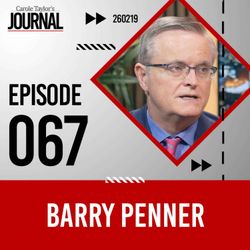
21. 67 | Electricity for All? (w/ Barry Penner, Energy Futures Institute)
22:46||Season 3, Ep. 21On this edition of Journal, we examine one of the received truths in British Columbia: that one of our economic advantages is that BC offers businesses and industry a plentiful supply of hydroelectric energy at reasonable cost.What could be a better pitch? It is clean energy to run your enterprise.In fact, Premier Eby has had press conferences highlighting the government’s demand that new mines, LNG, data centres, will be powered by electricity.Sounds pretty appealing in a time of climate awareness. But is it the reality?A couple of hard facts – for the third year in a row, BC has not produced enough electricity to even serve our own current needs, let alone all these new initiatives. That’s right: we import electricity.And, besides that, according to Energy Futures, BC Hydro has a backlog of demands for more clean energy.So we already have an electricity deficit in our province, a queue of current requests for more permits while at the same time, we are actively encouraging new businesses to electrify, customers to buy electric cars, and home heating to move away from natural gas to electric heat pumps.Realizing the impending crisis, the Premier announced this week heavy users such as AI and data centres will have to compete for electricity through a managed process. How will that work? Who decides which businesses win the lottery?Barry Penner, Chair of the Energy Futures Institute and a former BC cabinet minister calls this “a serious case of policy dissonance.”---Carole Taylor's Journal is a public affairs dialogue that digs deep into the most pressing issues of our times. For more, see our website at http://www.caroletaylorsjournal.ca.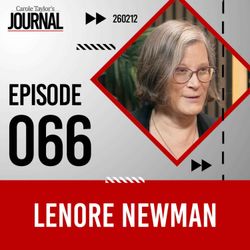
20. 66 | Canada as a Breadbasket (w/ Dr. Lenore Newman, University of the Fraser Valley)
22:35||Season 3, Ep. 20On this episode of Journal: an examination of the worrisome new expansion of what it means when we talk about food security.In the good old days – actually only 9 months ago – when Journal last spoke with Lenore Newman, one of Canada’s top experts in this field, much of the focus was on the effects of climate change: how our supply chains must adjust and how Canada’s own agriculture would be affected.Who would have believed that Lenore would now pen an op-ed that says, “We are living in a world of sharks who don’t think twice about sacrificing communities to the whim of politics.”She goes on to say that “an irascible US government could starve us within days and we would have no easy alternatives.”Wow. This, of course, comes on the heels of our Prime Minister’s remarkable speech at Davos, where he posited that “a country that can’t feed itself, fuel itself, defend itself has few options.”So, this discussion of food security has become a lot more serious – and fast. What if CUSMA goes away? What if 100% tariffs were put on all food imports – remembering that over half of our agrifood imports come from the United States? What if the border was “temporarily” closed?So what are we to do? As Prime Minister Carney has said, “Nostalgia is not a strategy.”To help guide us in this discussion is Dr. Lenore Newman. Besides being the Director of the Food and Agriculture Institute at the University of the Fraser Valley, she also holds a Canada Research Chair in food security.---Carole Taylor's Journal is a public affairs dialogue that digs deep into the most pressing issues of our times. For more, see our website at http://www.caroletaylorsjournal.ca.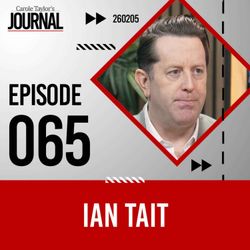
19. 65 | Paramedics’ Emergency Call (w/ Ian Tait, Communications Director, Ambulance Paramedics of BC)
22:45||Season 3, Ep. 19On this edition of Journal, we take a closer look at one piece of our health care system that doesn’t usually get much attention, even though we see them working on our streets all the time: paramedics.We hear about doctor shortages and nurse shortages, but did you know we have a paramedic shortage? In rural and remote areas of the province alone, there are close to 400 vacancies.The problem is exacerbated when an emergency call comes in but the ER is closed or on diversion. According to Mayor Goetz (of Merritt, British Columbia), a paramedic – if available – must transport and accompany the patient around 100 kilometres to the nearest hospital for emergency care. That takes time, leaving the community vulnerable.Also, the province does not allow the service to pre-schedule overtime coverage in advance when there are known holes in the schedule – for vacations, as an example. This results in a patchwork system, sometimes covered by firefighters but often resulting in wait times that are too long.So, a few questions:What is a day in the life of a paramedic like?What training is required?Why aren’t more people applying for these vacant positions?I can’t help but worry about the constant stress that our overdose crisis has added to the job of being a paramedic. Imagine reviving the same person over and over again with the same result. That must take a toll.To talk about some of these issues is Ian Tait, spokesperson for the Ambulance Paramedics of BC, who are currently in negotiation with the government. What are the biggest issues and possible solutions?---Carole Taylor's Journal is a public affairs dialogue that digs deep into the most pressing issues of our times. For more, see our website at http://www.caroletaylorsjournal.ca.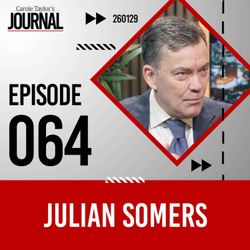
18. 64 | Decriminalization: Where to go from here (w/ Julian Somers, Simon Fraser University)
22:41||Season 3, Ep. 18On this edition of Journal; an opportunity to look back at British Columbia’s failed experiment of decriminalization – and look forward to what might come next.Dr. Julian Somers, a clinical psychologist and distinguished professor at Simon Fraser University, was one of the first voices to speak up about the perils of decriminalization and safe supply of drugs when these initiatives were first announced, and the powers-that-be didn’t like that – or him. At one point, he was told to destroy his report and not rock the boat.Initially, we were all told that the goal of these policies was to destigmatize drug addicts and prevent overdose deaths. But as the Minister of Health, Minister Osborne, has now admitted, it didn’t work. What it did do, however, was lead to increased public use of drugs on our streets and in our neighbourhoods, raising disorder and public safety concerns – an unintended consequence that should have been anticipated.So, now we are moving on. To what, you might ask? And how?Is there a consensus on first steps? I would suggest one of the most important changes that must happen is a sea change in attitude away from just supplying drugs to addicts, to the consideration of other strategies for care or recovery.For sure, it will involve more treatment beds, more available social services for support, and – in some severe cases – involuntary care models. But are we ready to even have this conversation?Dr. Somers believes that underpinning any future success must be data. “We need to state how our interventions are expected to result in improvements and how we’re going to measure progress.”---Carole Taylor's Journal is a public affairs dialogue that digs deep into the most pressing issues of our times. For more, see our website at http://www.caroletaylorsjournal.ca.ctj064 #decriminalization #britishcolumbia #bcpoli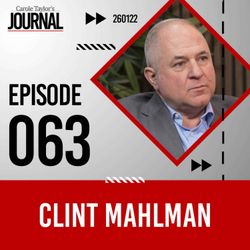
17. 63 | Downtown Eastside is Dying (w/ Clint Mahlman, CEO of London Drugs)
22:44||Season 3, Ep. 17On this edition of Journal, we look at the sad Vancouver tale of the rise and fall of Woodward’s on Hastings Street.Built in 1903, the Woodward’s building was the place to be in Vancouver – a one-stop department store famous for its renowned food floor. Glory days.But few things stay the same forever. The Woodward's decline began in the 1960s as both shopping patterns and Vancouver’s Downtown Eastside began to change. Many shoppers chose the shiny new suburban malls rather than the deteriorating downtown location. The losses at Woodward’s began to mount company-wide until they declared bankruptcy in 1993, 90 years after its much-celebrated opening on Hastings Street.But that wasn’t the end of the Woodward’s story. The heritage building remained empty until the city bought it in 2001, with grand visions of a revitalized anchor for the Downtown Eastside of Vancouver, providing homes and services for the community. This project was controversial from the outset, with some fighting against this so-called gentrification, while others worried that too much social housing in one project would not work.But reopen it did, in 2009 with much fanfare about the anchor tenants supporting the redevelopment: Nesters Market, TD Bank, London Drugs, J.J. Bean, among others. But that was then and this is now: TD bank has closed its doors, J.J. Bean is gone and now London Drugs has announced its imminent closure.The reasons are all similar – increased crime and disorder on the streets, worry about safety for staff and customers, and financial losses.Clint Mahlman, CEO of London Drugs, joins me to talk about this difficult decision.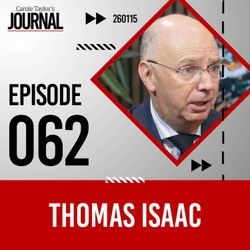
16. 62 | Complications for reconciliation in British Columbia (w/ Thomas Isaac, Cassels Brock & Blackwell LLP)
22:37||Season 3, Ep. 16On this edition of Journal: another hitch in the plan for a smooth path to reconciliation in British Columbia.First, we had the BC government’s introduction of the Land Act, which unsettled many of its assertions of co-management with First Nations of all the Crown land in the province. The Act was withdrawn, but not before some name-calling.But then in a splashy press conference, Premier Eby announced the granting of aboriginal title to Haida Gwaii. When people of all stripes and professions raised questions about what that would mean for private property owners, the Premier announced again and again it would not affect private property.And then, boom – there was the court decision granting aboriginal title over land in Richmond to the Cowichan, with the Judge suggesting – despite what had been asserted by Premier Eby – there were issues around private property rights.Finally, last month in another twist on this reconciliation journey, a different judge in a separate case found that BC’s mineral claims regime, fundamental to our hoped for resurgence in mining, is inconsistent with the province’s own declared law, DRIPA – the Declaration on the Rights of Indigenous Peoples Act – because mining claims were made before receiving free, prior, and informed consent from First Nations.With all of this cumulative confusion and uncertainty, is it any wonder that support for reconciliation has fallen in recent polls?Joining me to make sense of all this is Thomas Isaac. As one of our country’s leading experts on aboriginal title and the law, he has concerns about what he is seeing in BC.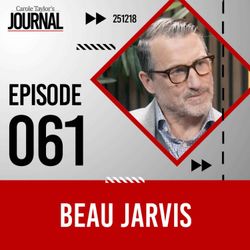
15. 61 | To Dream the Impossible Dream (w/ Beau Jarvis, Wesgroup Properties)
22:40||Season 3, Ep. 15On this edition of Journal, we try to make sense of the mish-mash of housing initiatives coming at us from all directions – federal, provincial, and municipal governments.Two things seem obvious. First, no one is coordinating these various programs, since some of them overlap and some even contradict each other. At one point last spring, research showed there were at least 60 initiatives aimed at developers and builders, supposedly to increase the supply of housing, therefore leading to affordability. But have they?Second, the whole issue of housing is fractured into parts. There is home ownership, market rental, below market rental, social housing, seniors housing, assisted living, and on and on. Each category gets debated on its own with little attention to how it fits with all the other needs. Policies are then developed sector by sector.Beau Jarvis sees this as a problem. Beau is the President and CEO of Wesgroup Properties, one of Canada’s largest housing providers. For many years, his company has been a major player in purpose-built rental housing. Many people in government and in the community feel that this is the only answer to affordability, but is it?Have we completely given up on the idea of ownership – in any form – because it seems so expensive and so impossible?But at the moment, rental is the flavour of the month, garnering much of the attention and policies to support it. Despite Wesgroup’s strong presence in that market, Beau feels it is a mistake if we aren’t talking about housing as a whole with all its permutations and combinations since piecemeal policy does not guarantee a liveable, affordable city.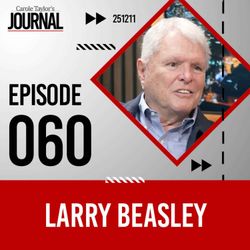
14. 60 | There Goes the Neighbourhood (w/ Larry Beasley, City of Vancouver urban planner)
22:43||Season 3, Ep. 14On this edition of Journal, we examine what is happening to the City of Vancouver – and what can be done, if anything, to turn this situation around.When I was a councillor in the late eighties, I remember one example of how neighbourhood planning was done in those days: on the street, not in backrooms.A brand new False Creek residential development, to be built on industrial land, while controversial, was to be a centrepiece of new urban planning principles. Immediately, questions arose. How can you have density without amenities like parks? Or the idea that you can’t start building without thoughtful plans for infrastructure and traffic management. Most importantly, you have to talk to residents (or future residents) about their needs.Larry Beasley, an urban planner for the city, was not content to just send paper reports to Council – he took a group of us councillors down to False Creek so we could actually see the design initiatives that were important to liveability, rather than just plunking down apartments.As a sidebar, part of the lesson was about quality, dramatically emphasized when he was mid-sentence explaining why a certain kind of rock – rip-rap – had to be used along the shoreline to prevent rats from infesting the residential area. Just at that moment, a rat appeared and scampered up to us. Alright, alright. Pay for the right rip-rap! But the point actually is, Larry Beasley was always hands-on: walking the streets, talking to residents, asking questions, listening and responding, ensuring we built a city for its citizens. It is a big reason why Vancouver has so many unique neighbourhoods. And for many years, those streets became mini communities – safe to walk, shop, and talk to your neighbours.Larry is not happy with what he is seeing today: that the province has decided it can design our cities from Victoria.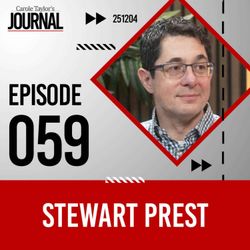
13. 59 | Turmoil on the Right in British Columbia Politics (w/ Stewart Prest, University of BC)
22:40||Season 3, Ep. 13On this edition of Journal: What has happened to the centre-right coalition that ran British Columbia for so many years, under various names (SoCreds, BC Liberals, etc.)?The latest iteration was cobbled together just before the last provincial election when John Rustad, who had been kicked off the BC Liberals before they became BC United, joined up with the dormant Conservative party – and then Kevin Falcon, the BC United leader, pulled his party out of the race.And we’re seeing the same kind of division on the right at the municipal level in Vancouver. Ahh, BC politics.And unbelievably, this party with virtually no money, no organization, and a lot of newbie candidates almost won the election. Such was the unhappiness with the NDP government and Premier Eby.Now, one might have thought that such a surprisingly good result would have given this new group hope and enthusiasm for the future. But no. Instead of all pulling together in the same direction with one eye on the future, the backstabbing and innuendo began.Whispers and more whispers: John Rustad, the man who brought them so close to victory would be gone by Monday, or next week, or next month.One year later, five MLAs have left or been kicked out of caucus and a majority of the Conservative Party executive have called for Rustad’s resignation, as have the presidents of five Metro Vancouver ridings. And yet, John Rustad is becoming more and more prominent on social media, talking about issues such as Cowichan, affordability and EV mandates.To help us understand the machinations of politics in this province is my guest this week, Dr. Stewart Prest, a lecturer in political science at the University of BC.